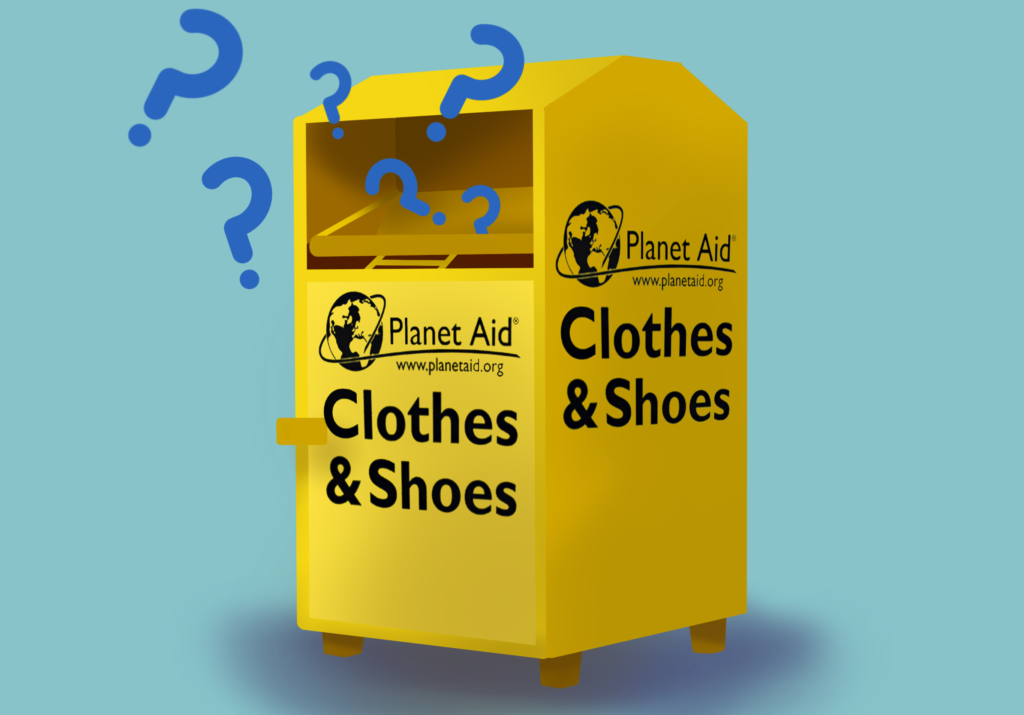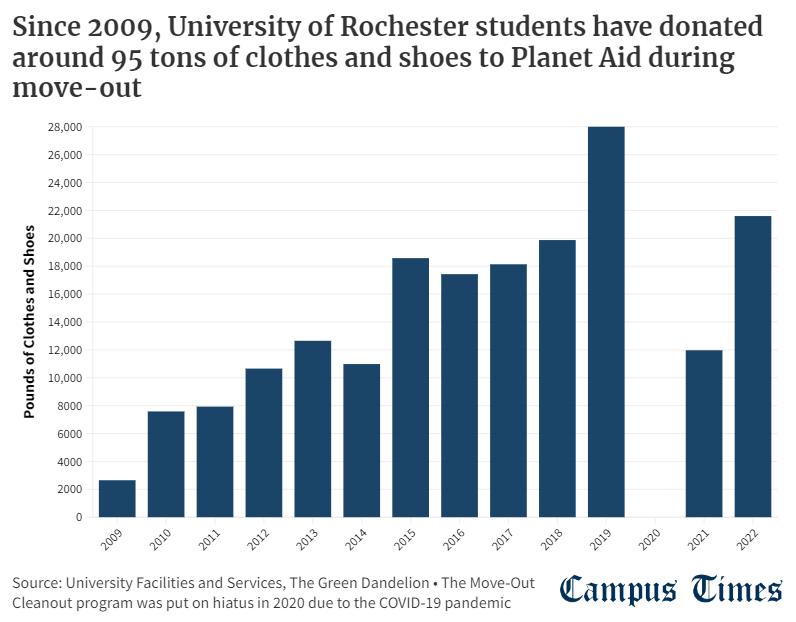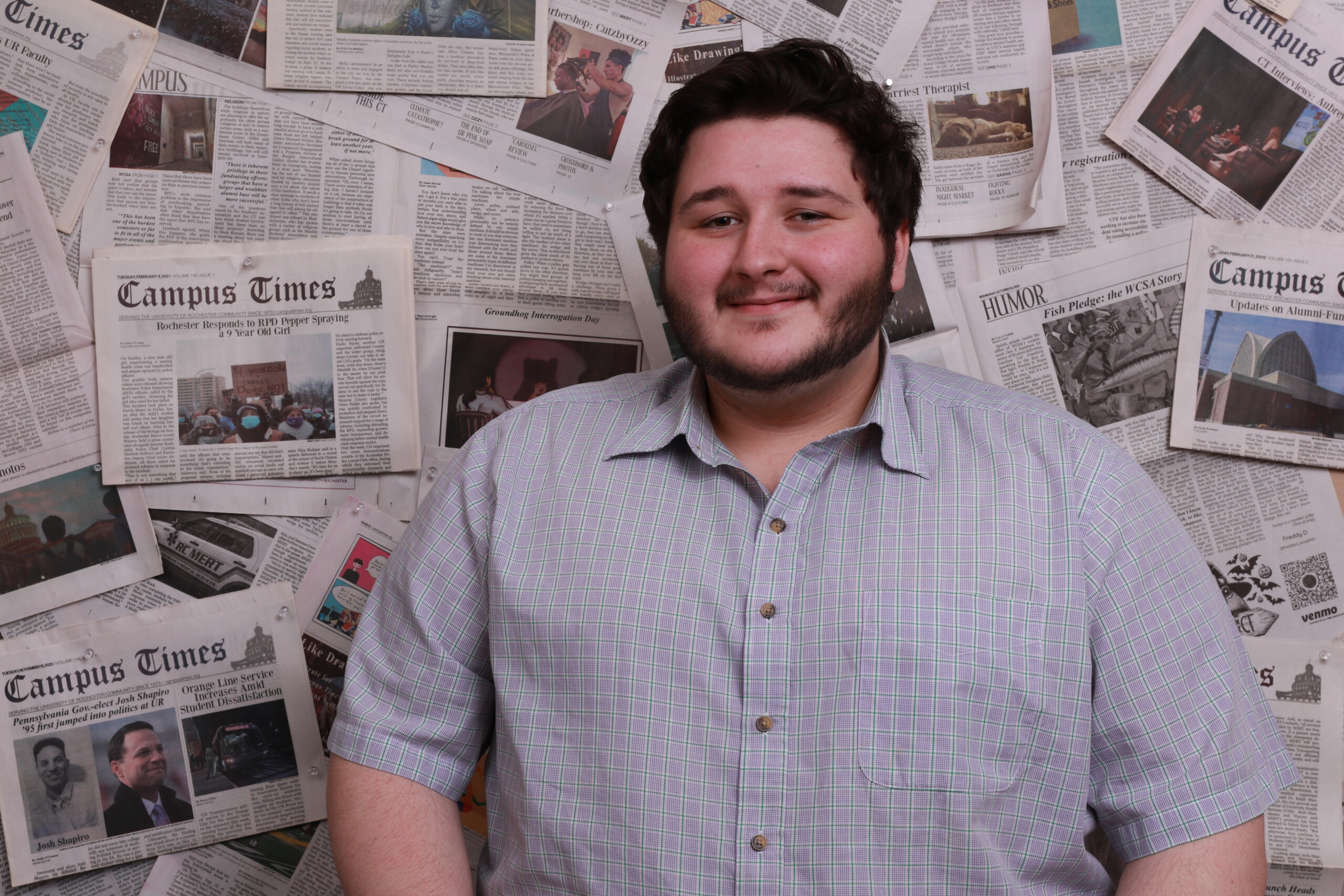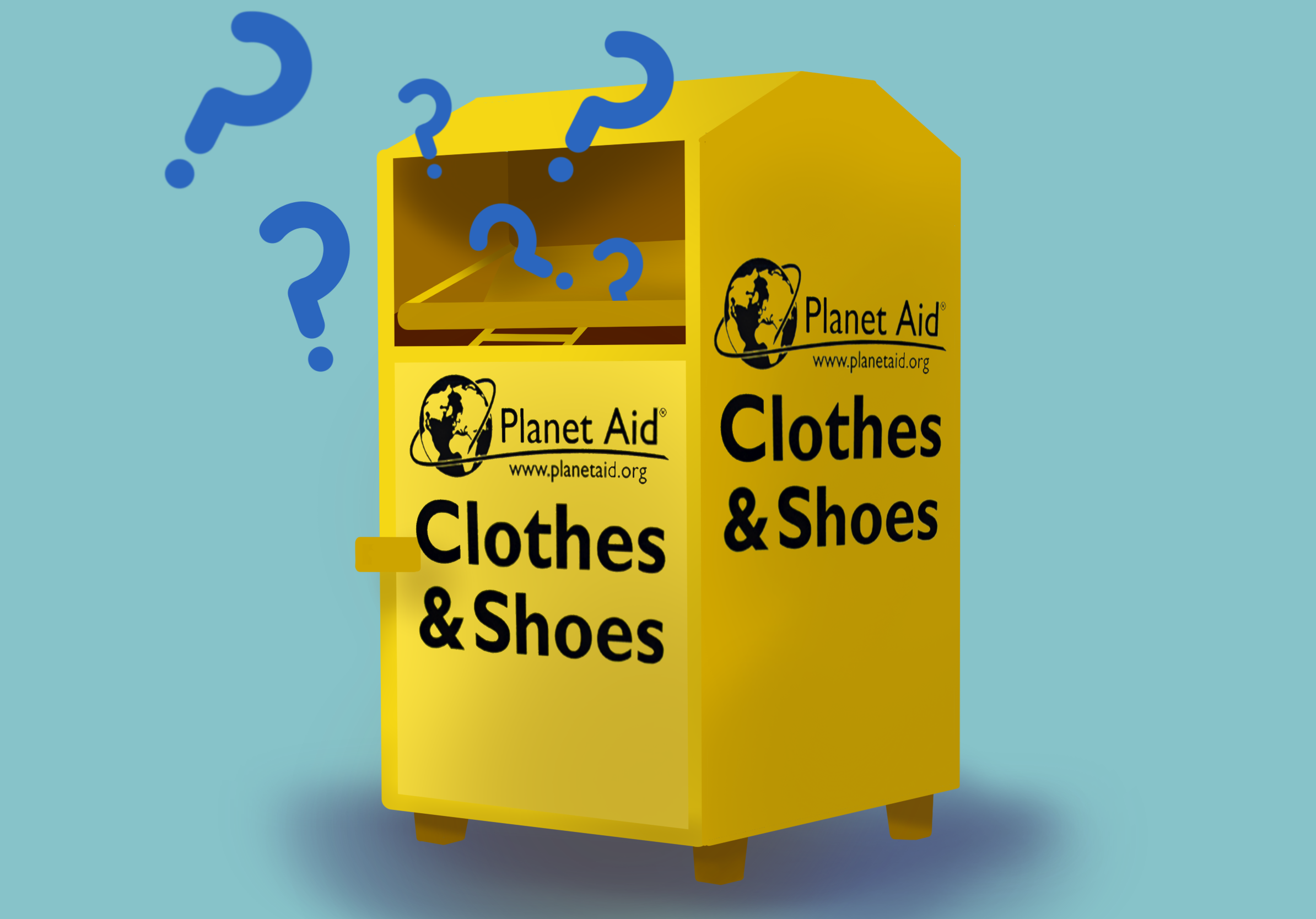The sunny-yellow Planet Aid, Inc. donation bins brought in during move-out season may seem inviting, but their appearance masks a company with links to an alleged cult, a poor charity watchdog rating, and a history of suing investigative publications.
University Facilities and Services has partnered with Planet Aid for its annual Move-Out Cleanout event since the initiative’s conception in 2009, according to a 2010 post from Facilities and Services’ sustainability blog The Green Dandelion. Since the partnership began, students have donated around 95 tons of clothing and shoes to Planet Aid through the bins they place on campus and around University housing during spring move-out.
The company, however, was the subject of a podcast and series of investigative articles published by Reveal from the Center for Investigative Reporting throughout 2016 and 2017. That reporting situated Planet Aid within a network of charities operated by Mogens Amdi Petersen, the founder of a secretive Danish organization called the Teachers Group that “former members, academics and the Danish media have likened to a cult,” Reveal reported. Amdi is currently an international fugitive wanted in Denmark for aggravated embezzlement and aggravated tax evasion.
Evidence from an initial Danish investigation into Petersen’s Teachers Group throughout the 1990s and early 2000s was passed to the Federal Bureau of Investigation in 2002, Reveal reported. An internal FBI report published by Reveal included Planet Aid in a list of charities in Petersen’s alleged fraud operation.
“Tvind [another name for the Teachers Group] derives income from the creation of Developmental Aid Organizations,” the FBI report stated. “Money is raised by the collection of used clothes. The clothes are recycled and sold in third world countries. The proceeds are sent to charitable trust funds established in Off Shore tax havens. A number of these groups are operating in the United States. They include: UFF, Development Aid from People to People, Humana People to People, Institute of International Cooperation and Development, and Planet Aid. […] In each of these organizations the funds are ultimately controlled by captioned subjects who divert the money for personal use. Little, to no money goes to the charities.”
Reveal reported that Denmark banned Petersen’s Teachers Group from access to public funds for a period, and that today there are “support groups for ex-members who meet and attempt to make sense of the years they lost to this man.”
“By the late 1990s, officials say, Petersen’s organization operated charities, private companies and financial shells in at least 55 countries,” wrote Reveal. “Those organizations, U.S. and Danish law enforcement officials allege, include a network of financial fronts with dozens of overlapping shell companies in the British Virgin Islands, Isle of Man, the Cayman Islands and at least a half-dozen other offshore jurisdictions.”
Reveal’s reporting, which was expansive, also covered an alleged complex relationship between Petersen’s charity network (including, allegedly, Planet Aid) and United States humanitarian aid to African countries. However, a court ruling called much of this portion of their coverage into question.
In Aug. 2016, six months after Reveal released the podcast that kicked off their series, Planet Aid filed a defamation lawsuit against the nonprofit newsroom that was resolved on Aug. 11 of this year when the Ninth U.S. Circuit Court of Appeals affirmed with prejudice a lower court’s dismissal of the suit.
The initial ruling by the United States District Court for the Northern District Court of California decided in favor of Reveal but found that Planet Aid “met their burden to show falsity” of numerous statements by Reveal, all relating to the alleged diversion and misuse of USDA aid money to the company for projects across Africa. The court also held, on the other hand, that Planet Aid did not meet that burden in regards to any of Reveal’s reporting on the company’s aforementioned links to government investigations or Petersen.
Planet Aid countered the statements in court using testimony from multiple employees and affiliates and relevant documents despite, as Reveal claims, Reveal’s journalists having given the company numerous opportunities to issue statements or present counter-evidence to the reporting as it was being conducted.
In 2019, Reveal spoke up about the lawsuit, arguing it was an attempt to financially harm their organization in line with other libel cases against newsrooms. They likened it to Bollea v. Gawker, in which billionaire Peter Thiel financed an expensive libel suit against Gawker Media that effectively put them out of business.
“Planet Aid’s actions in its lawsuit against Reveal are a manifest example of what deep-pocketed interests can do to a news organization even when the facts are on the journalists’ side,” wrote Reveal. “[…] It is notable that Planet Aid has leveled its legal firepower solely at Reveal, a modestly sized nonprofit journalism organization, rather than taking on the larger network of newsrooms that contributed to and distributed our reporting on Planet Aid, including the BBC and NBC Washington.”
On top of the allegations reported by Reveal, CharityWatch, a nonprofit charity watchdog organization, has assigned Planet Aid an F rating for a number of years based on their by-hand auditing of the 501(c)3’s tax reports.
CharityWatch argues that Planet Aid’s expenses on its donation collection and processing, which the company reports as program spending, actually qualifies as fundraising because “the expenses a charity incurs to raise donations, whether the donations are in the form of cash or non-cash items like donated clothing, are fundraising expenses, not program expenses.”
“The most damning evidence against Planet Aid’s financial reporting logic is provided by the charity itself,” CharityWatch continued. “This charity does not distribute the vast majority of the clothing and other goods it collects to needy people — it sells the items. In 2020 Planet Aid brought in over $22 million from selling these items. This proves that there is a ready market of buyers willing and able to pay large sums of money to purchase used clothing, shoes, and textiles like the ones Planet Aid collects. It is ridiculous for this charity to assert that items worth tens of millions of dollars would end up in a landfill if Planet Aid did not collect them.”
Amy Kadrie, the University’s sustainability coordinator who started and runs the Move-Out Cleanout program, said she had some loose knowledge of the allegations against Planet Aid because students had brought them up to her in the past.
“I’ve heard different allegations from time to time,” she said. “From what we have looked into, there hasn’t been anything proven. Planet Aid hasn’t been wrongfully convicted of anything.”
She pointed to the company’s statement about the lower court’s findings of falsity as evidence, acknowledging that she did not have in-depth knowledge of the situation when presented with the fact that the ruling did not discount all of Reveal’s reporting and that Petersen and his associates had fled extradition as the case against them was appealed, hindering attempts to bring all of this information to a court determination.
Planet Aid’s Upstate New York office and warehouse are located in Rochester, and Kadrie said the University continues to work with Planet Aid because they have been able to handle regular pick-ups and the scale of the move-out program. They previously worked one time with Goodwill Industries, but she said Goodwill was unable to handle the volume to the University’s standards.
“If we were to reevaluate and ultimately decide not to continue our partnership with Planet Aid, I honestly don’t know if we have a better option,” said Kadrie. “We haven’t found one to date. Unless we were able to get more University support, where University staff could become more involved, and I have never heard that option to be on the table. It’s a very small program […] It’s a lot of clothes collected, but small in terms of compared to what other universities do where there’s more presidential support at the top and leadership support. So we depend on our charity partners to manage their side of things.”
Kadrie said terminating the relationship with Planet Aid would effectively mean the shoes and clothes would go to the landfill unless the move-out program could get more support higher-up to increase its funding and staffing to help other partners take in the donations.
“There’s no dollars dedicated to it, it’s just my efforts in partnering with the organizations,” Kadrie said. “[…] We’re a very decentralized university. I’m with Facilities and Services, so it would need to come from somebody’s budget, and I don’t know. We would need to have another department step up and help. Or, if it’s centrally funded, which not many things are at [UR], that’s our decentralized nature, then that would be really a presidential decision or leadership decision.”
But she also said that conversation about increased funding for sustainability team programs is often a dead-end.
“It’s a discussion that never goes anywhere, to be honest with you,” said Kadrie. “We’ve had a Sustainability Council that was at the University. It wasn’t really funded, and it didn’t really have authority. So, we have been working on a sustainability plan, and the goal is that it would be signed by the President. Right now if you go to a different department and say, ‘We need this done’ they’ll say, ‘Well, why?’ because they don’t have it in their budget. But if we had a presidential plan with actual goals, then it would be a higher priority to other departments. […] That may or may not affect this specific program, because there’s so much when you’re talking about sustainability, but it’s not off the table.”
Planet Aid’s Rochester office initially passed along a phone number via email but did not respond to multiple follow-up interview requests.




